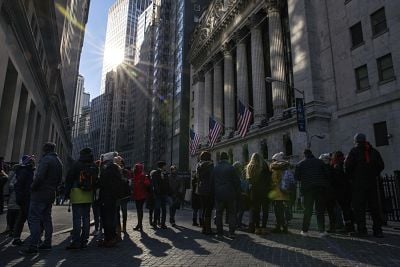Billionaires and millionaires in the U.S. are arranging loans to have funds readily available so they won't have to sell off investments in the event of an economic downturn, according to Jim Steiner, head of Wells Fargo & Co.'s ultra-high-net-worth business.
(
More:
Global boom swells ranks of the ultra wealthy)
"They always want to have lines in place for if markets do turn down and they get capital calls on private investments," Mr. Steiner, who leads Wells Fargo's Abbot Downing unit, said Monday in a Bloomberg Television interview. "They want to be able to make those capital calls through use of the line as opposed to basically selling equities in the public markets."
Mr. Steiner has expanded Abbot Downing into a $43 billion business since the brand started in 2012, and lending has increased by 5% in the past year, according to a spokeswoman. Jon Weiss, head of Wells Fargo's larger wealth and investment-management arm, said earlier this month that he plans to combine Abbot Downing with Wells Fargo's private bank, which serves clients with at least $2.5 million, under one leader as part of his quest to streamline operations since taking over last year. The businesses will remain under separate brands and have distinct teams.
Global personal wealth ballooned to a record $201.9 trillion last year, according to Boston Consulting Group, with the world's 500 richest people controlling an unprecedented $5.3 trillion, a boon for the private-banking industry. Morgan Stanley and Goldman Sachs Group Inc. are among firms seeking to lend more to the ultra-rich, pegging loans as a key area for growth.
(
More: Exactly how rich is 'rich'?)
The U.S. is undergoing its second longest economic expansion on record. But evidence is mounting of slowing growth amid concerns of a trade war with China and central bank tightening.
"All crises get more challenging if you have a lack of liquidity and then you also have leverage, and so I think they want to make sure that they've got some powder dry – that they don't have to be selling equities into a down market," Mr. Steiner said.







